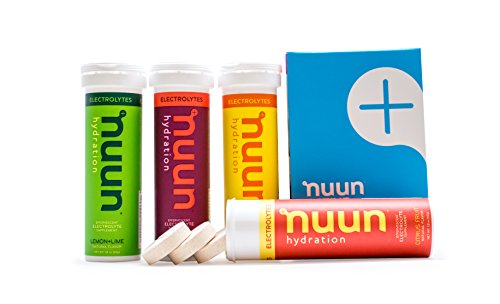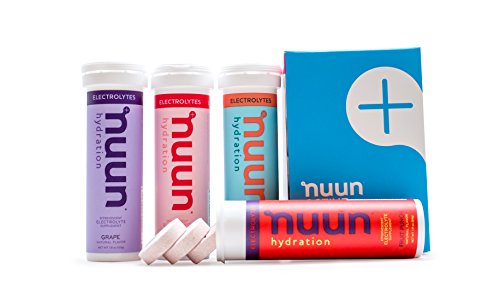Preventing painful cramps during a fencing competition
An athlete with painful cramps
Taking steps to prevent muscle cramps in the first place is a much better strategy than having parents and coaches rushing around looking for a massage roller, water and salt to try and reduce a distressed fencer’s cramping.
Muscle cramps are one of the worst experiences for any fencer, they are:
painful,
very hard to eliminate once they get started, and
can force you out of the competition entirely.
For a fencer, cramps are most common in the hand and fingers, the weapon arm, the quadriceps, the hamstrings and the calf. Even foot cramps can occur during a fencing bout. Cramps in any one of these areas, not to mention cramps in multiple areas, can be so painful as to take a fencer out of the competition altogether, Or, they can so severely limit the fencer’s ability to move that he/she gives up touches, and loses the bout.
Both fencers in this gold medal bout at the November NAC 2016 in Kansas City had severe cramps, it was painful! I witnessed the bout “live”. Watch the VIDEO HERE
In this very painful bout, the fencers were both given their 10 minute medical break, Gatorade, and tomato ketchup packs (for the salt). There was nothing else available at 6.30pm in a near empty venue. The medics present administered massages, but as you can see, the cramps were severe for both fencers.
why do cramps occur?
An understanding of why and how muscle cramps occur will be helpful for both parents and fencers. It will really clarify the rationale for taking preemptive steps to keep those painful cramps away, and not be forced to withdraw from or lose in a crucial DE round.
It is generally explained by experts that fluid imbalances occurring between the inside and outside of our cells result in pinched nerve endings causing spontaneous discharge of fluid. The spontaneous discharge causes severe muscle twitches and ultimately cramps.
The fluid imbalance starts as a result of heavy sweating during periods of intense exercise. The resulting loss of fluids (dehydration) and the loss of electrolytes (sodium, in particular), critical for the smooth shifting of fluids between the inner and outer cells can lead to severe muscle cramps and a condition known as hyponatremia, The latter is a dangerous condition requiring medical condition, It occurs when blood sodium levels are extremely low.
Medical experts also explain that fatigued muscles can misfire and become twitchy leading to cramps.
The question is whether cramps can be prevented altogether, or at least, minimized or delayed.
Both proper hydration and electrolyte replenishment, sodium especially, are essential in helping to prevent painful cramps most of the time, or at least, delaying the onset for as long as possible. Some people are more prone to cramps than others, and for those fencers who are more prone to cramps, taking preventive measures is critical.
When a fencer competes in multiple events over the course of several days, at NACs in particular, dehydration and loss of electrolytes could be a slowly accumulating condition as the fencer’s intake of fluids and electrolytes falls a little short for each event, culminating in major cramps on the last day.
Keeping your muscles flexible and warm helps with muscle fatigue, and prevent cramping.
Hydration
As we know, dehydration has many nasty consequences for anyone, much less a fencer during intense competition. Not only will dehydration lead to dizziness, elevated heart rate, rapid breathing and fainting, it can also lead to muscle cramps. Muscle cramps aside, any of the other symptoms would cause a fencer to lose focus and perform sub-optimally.
Studies have shown that it takes about 45 minutes for our bodies to fully re-hydrate from a position of rest and mild hydration after drinking about 600ml (20oz) of water.
Fencers, therefore, need to be consistently and frequently ingesting fluids during a fencing competition to maintain the body at full hydration throughout. In fact, fencers should arrive at the venue fully hydrated, long before the start of competition.
It is not a good idea for a fencer to arrive only partly hydrated. He/she won’t be able to catch up on hydration during the competition, the body cannot hydrate itself fast enough when there is a contemporaneous loss of fluids and electrolytes through heavy sweating.
While water is generally acceptable for normal hydration, a fencer needs electrolyte enhanced fluids to stay in good condition throughout the fencing competition.
Sodium
The 4 electrolytes are sodium, magnesium, potassium and calcium. We lose these electrolytes through heavy sweating during intense physical activity, including fencing competitions.
Because sodium is by far the most important electrolyte in cramp prevention, eating a banana, which is potassium rich, between bouts will not help much with cramps. The banana provides the calories for energy but not the most important electrolyte.
Your fencer needs SALT!
Eating salted pretzels may help! They provide some salt and a supply of carbohydrates, which are also essential to keeping your energy levels up during a fencing competition.
For my son, Gatorade and other equivalent energy drinks like Powerade and Vitamin Water have worked fine for the less intense regional and local competitions. But at NACs, my son has needed a higher level of electrolytes.
In my experience with my son, Nuun makes one of the most effective electrolyte tablets. Nuun electrolyte tablets are available in multiple berry and citrus flavors to appeal to different taste buds. They are also quite fast acting. I have shared them on occasion with fencers experiencing cramps during a bout, and they have helped to reduce their cramping.
The hydration range of Nuun electrolyte tablets contain sodium, potassium, magnesium in calcium in proportions needed by our bodies. These tablets also contain non-GMO sourced dextrose to speed up absorption, plant based sweetener and avocado oil. Be aware that some flavors contain caffeine due to green tea extracts. I personally avoid buying the flavors with any caffeine content.
I drop the tablet into a 16 oz bottle of water, and it dissolves rapidly to form an electrolyte drink. I replenish the water throughout the fencing competition day from the water fountains scattered around the competition venue, and add in electrolyte tablets as necessary.
These tablets are not only convenient to use, they weigh almost nothing. A tube of Nuun weighs 1.9oz. A bottle of Gatorade weighs 1.25 lbs. The Nuun tablets are a whole lot easier to carry around a tournament venue than 5 bottles of Gatorade.
Through a marketing arrangement with Amazon, we can now make Nuun Hydration sets and other popular electrolyte tablets available through our Fencing Parents Practical Supplies for Fencers Store. Nuun is also available at Wholefoods, and electrolyte tablets can also be purchased at selected grocery stores and drugstores.
Stretching and Massage
Loose relaxed muscles are far more responsive than tight muscles. They are less prone to injury, and help alleviate symptoms of muscle fatigue like cramping. Some fencers bring a massage roller or a small foam roller with them to competitions. These rollers facilitate focused stretching of key muscles like the quadriceps and hamstrings. However, if you are not inclined to pack these items in your luggage, then there are plenty of stretches that a fencer can engage without accessories.
This VIDEO on Stretching and Warm-ups for fencers is comprehensive, and your fencer can adapt some of these moves for use at the competition venue.
regular fencing training
Consistent and regular training conditions and strengthens the crucial muscles used in fencing. A well trained muscle fatigues less easily, and is, therefore, less likely to cramp under competition stress. There is also the added advantage of being in good shape to go the distance under highly competitive and stressful conditions, especially at NACs.
click for your Supplies here
Full Disclosure: By making these supplies available on our website, Fencing Parents acts as a marketing affiliate of Amazon
Check out our Practical Supplies for Fencers Store
Share this update with someone who will find it helpful




